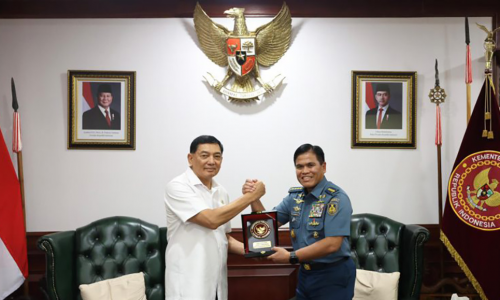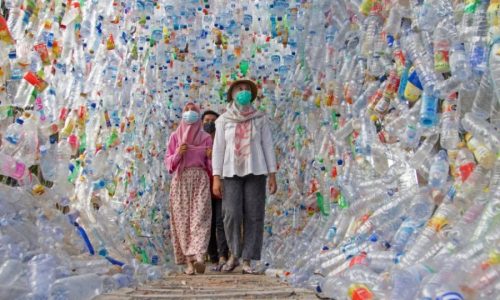The Ministry of Manpower noted that 60 textile companies may soon go bankrupt after being severely hit by financial problems since 2023 and due to the issuance of import regulations.
Immanuel Ebenezer, Deputy Minister of Manpower, accused the issuance of the Minister of Trade Regulation (Permendag) No. 8/2024 as the main cause of the collapse of these textile companies.
The 2024 Trade Minister regulation, which is about import policies and regulations, is the fourth revision of the same regulation.
Heru Widianto, Director of Institutions and Prevention of Industrial Relations Disputes at the Ministry of Manpower, said that the revision of Permendag No. 8/2024 was a proposal created by the Tripartite Cooperation Institution, which consists of three elements, namely entrepreneurs, workers, and the government.
There are two points that are questioned in Permendag No. 8/2024, namely the relaxation of import requirements and the regulated tariff posts. Both of these things allow importers to import in bulk.
Immanuel explained that 60 textile companies laid off 13,061 permanent employees and stopped extending contracts for 5,000 employees. Therefore, Immanuel said that one of the mitigations carried out was to encourage the revision of Permendag No. 8/2024.
“Textile entrepreneurs and workers told me that the source of layoffs in the textile industry is Permendag No. 8/2024 which eases imports of ready-made clothing,” Immanuel said on Monday, December 23, 2024.
The textile industry did not protest the third revision of import rules and policies in Permendag No. 36/2023. This is because the regulation tightens the import process by requiring Technical Considerations issued by the technical ministry.
However, the policy ultimately caused more than 26 thousand containers to pile up at Tanjung Priok Port in Jakarta and Tanjung Perak Port in East Java. The phenomenon was the forerunner to the issuance of Permendag No. 8/2024 which finally loosened the tap on imports to the domestic market.
Heru said the business world has considered the issuance of Permendag No. 36/2024 as a good measure. However, Heru admitted that he could not yet confirm whether the revision of Permendag No. 8/2024 would be similar to Permendag No. 36/2023 or not.
“What is important is how the revision of Permendag No. 8/2024 allows us to maintain local products being absorbed by the community,” he said.
Impact on Companies
Based on Immanuel’s records, at least five of the 60 companies are listed on the Indonesia Stock Exchange, namely PT Asia Pacific Fibers or POLY, PT Century Textile Industry or CNTX, PT Argo Pantes or ARGO, PT Ricky Putra Globalindo or RICY, and PT Tifico Fiber Indonesia or TFCO.
CNTX, ARGO, and RICY have stopped production, while TFCO has not extended the work period of contract workers. Meanwhile, POLY is listed as the upstream textile company with the deepest impact.
POLY has stopped production and laid off 2,500 people at its factory in Karawang, West Java. They have also reduced contract workers at their production facility in Kaliwungu, East Java.








